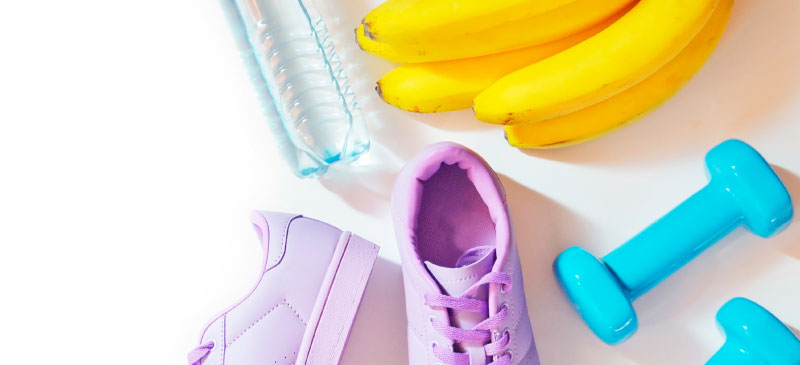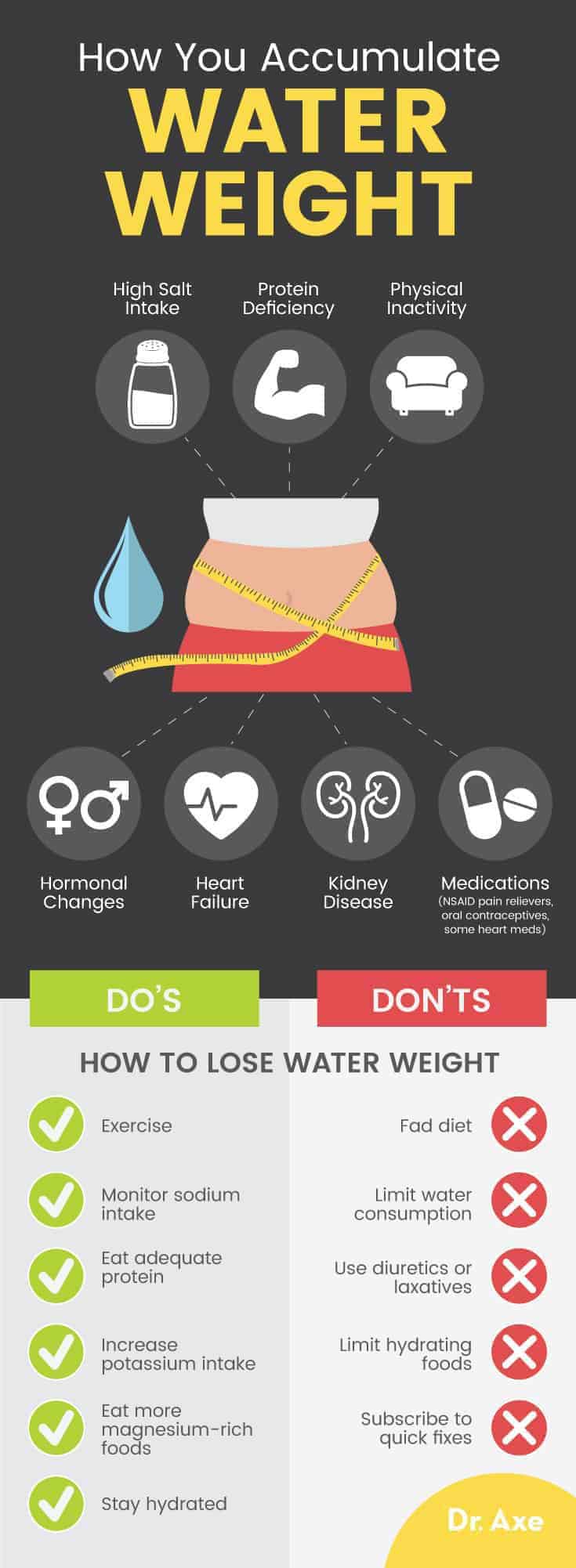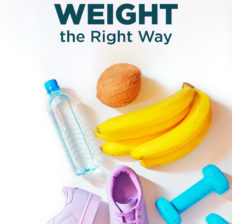This Dr. Axe content is medically reviewed or fact checked to ensure factually accurate information.
With strict editorial sourcing guidelines, we only link to academic research institutions, reputable media sites and, when research is available, medically peer-reviewed studies. Note that the numbers in parentheses (1, 2, etc.) are clickable links to these studies.
The information in our articles is NOT intended to replace a one-on-one relationship with a qualified health care professional and is not intended as medical advice.
This article is based on scientific evidence, written by experts and fact checked by our trained editorial staff. Note that the numbers in parentheses (1, 2, etc.) are clickable links to medically peer-reviewed studies.
Our team includes licensed nutritionists and dietitians, certified health education specialists, as well as certified strength and conditioning specialists, personal trainers and corrective exercise specialists. Our team aims to be not only thorough with its research, but also objective and unbiased.
The information in our articles is NOT intended to replace a one-on-one relationship with a qualified health care professional and is not intended as medical advice.
How to Lose Water Weight the Right Way
July 1, 2022

Water is crucial to health and accounts for a pretty big chunk of your body composition. In fact, the human body is made up of between 55 percent to 75 percent water. Still, water retention is a common problem and can cause issues like swelling, aches and weight gain, leading many to wonder how to lose water weight.
Learning ways to lose water weight can be tricky because there are many different causes of water retention, ranging from high sodium intake to kidney disease. If you’re holding on to excess water, you could be carrying an extra five to 10 pounds at any given time.
Some case studies have even reported on patients with up to 88 pounds of edema, or water retention, as a result of multiple health issues.
Luckily, making just a few simple lifestyle modifications can help you drop the water weight — and keep it off for good.
What Is Water Weight?
Before we can discuss how to reduce water weight, it’s important to understand what exactly water retention is and what causes it.
When you eat carbohydrates, many are converted into glucose (sugar) and used to provide energy for the cells. The leftovers are then converted into glycogen, which is stored in the liver and muscle cells.
If you need more energy later and there’s no glucose available, these glycogen stores can be quickly broken down and turned into glucose for fuel.
Glycogen holds on to a lot of water. In fact, research shows that for each gram of glycogen in storage, there are three grams of water attached to it. As you can imagine, that can add up to quite a bit of extra weight.
If you’ve ever started a new diet or workout routine and found that the pounds slid right off for the first few days, only to slow down to a screeching halt a few days later, this is because what you’ve lost initially was water weight.
Dieting or increasing your exercise routine creates an energy deficit, and when there’s not enough glucose available, your body has to pull from those glycogen stores for extra energy.
The loss of water attached to glycogen causes quick weight loss, followed by a plateau once your glycogen stores have been depleted.
How to Lose Water Weight Safely
1. Exercise
Physical inactivity is one of the main culprits of water retention, so getting up and moving is one simple way to help reduce water weight quickly and prevent body tissues from holding on to excess water in your feet and ankles.
Of course, increasing your physical activity is a win-win, because it can also help you lose fat and build muscle too.
Exercising can also cause you to lose water weight by burning up glycogen to provide energy. Not only does this deplete the glycogen stored in your liver and muscles, but it also removes all the water that is attached to it to cause water weight loss.
This doesn’t mean you have to hit the gym twice a day to prevent water weight buildup. Any form of physical activity is helpful.
Try some exercise hacks, like using the stairs instead of the elevator, taking a walk during your lunch break, or making sure to get up from the couch or computer for a quick stretch once an hour.
2. Monitor Your Sodium Intake
Because of the major role that sodium has in fluid regulation, decreasing your sodium intake will help reduce water retention. The most recent Dietary Guidelines for Americans recommend limiting your daily sodium intake to less than 2,300 milligrams per day, which is equal to about one teaspoon or six grams.
Surprisingly, the salt shaker isn’t the main source of sodium in the diet. In fact, an estimated 77 percent of sodium in the average diet comes from processed foods.
Foods like canned meats, cold cuts, cheeses, frozen meals, soups and savory snacks can pack in tons of added sodium.
The best way to slash sodium intake is to include mostly whole, unprocessed foods in your diet. If you do have canned or processed foods from time to time, remember to opt for low-sodium varieties whenever possible to keep sodium content to a minimum.
3. Eat Adequate Protein
Protein plays a big part in maintaining fluid balance and keeping water and salt from leaking out into the body tissues, so getting enough protein into your diet is crucial for avoiding water accumulation.
This is especially important for people on any kind of restrictive diet. Vegetarians and vegans, for example, should be especially mindful about monitoring protein intake.
So how much protein do you actually need? A good rule of thumb is to aim for one gram of protein for each kilogram of body weight. Someone who is 150 pounds, for example, weighs 68 kilograms and should try to consume at least 68 grams of protein per day.
Good sources of protein include seafood, poultry, lean cuts of beef, eggs, beans and legumes. Go for fresh meats and low-sodium varieties of canned beans to prevent high salt intake and further cut down on water retention.

4. Increase Your Potassium Intake
Much like sodium, potassium is another mineral that is involved in fluid balance and may aid in water loss by both increasing urine output and decreasing sodium levels.
In fact, one study published in the American Journal of Kidney Diseases showed that restricting potassium intake led to an increase in water retention as well as an increase in blood pressure.
It is recommended to get in at least 4,700 milligrams of potassium daily. High-potassium foods include leafy green vegetables, bananas, potatoes, avocados and tomatoes.
5. Eat More Magnesium-Rich Foods
Magnesium also helps regulate fluid balance in the body by increasing urine production, and several studies have found that raising your magnesium intake could reduce water weight.
In one study, women were supplemented with 200 milligrams of magnesium for two months, which was found to decrease premenstrual symptoms related to water retention, including weight gain, swelling and bloating.
Most adults need between 310–420 milligrams of magnesium each day. Magnesium is especially rich in leafy greens, such as spinach and chard, avocados, almonds, and black beans.
6. Stay Hydrated
Keeping well-hydrated can help flush out water from the body and cut down on fluid accumulation quickly and easily. You should typically aim to drink between 25 percent to 50 percent of your body weight in ounces of water each day.
If you’re looking to up your water intake, drink a glass of water before each meal and snack, or try setting a timer to remind yourself to drink regularly.
Besides drinking plenty of water, you can also focus on eating hydrating foods as well. Fruits and veggies are the best choices, with watermelon, celery, strawberries, cucumber and lettuce topping the charts as the most hydrating foods available.
How Not to Lose Water Weight
Do a quick internet search for how to lose weight quickly, and you’re bound to turn up plenty of unhealthy fad diets and quick fixes that involve a day or two of severely limiting your intake in favor of dropping a few pounds.
The use of medications like diuretics or laxatives can cause water loss but can also lead to electrolyte disturbances and negative effects on health.
Some of the negative symptoms of electrolyte imbalance caused by diuretics or laxatives include muscle cramps, confusion, dry mouth, drowsiness, fatigue and even heart palpitations.
Not only are these practices unhealthy and potentially unsafe, but they also produce only short-term and temporary results. As soon as you resume your usual diet or stop taking these medications, you’ll be replenishing your glycogen stores and gaining the water weight back — with interest.
Instead, the best way to lose water weight is by maintaining a well-rounded, balanced diet rich in essential vitamins and minerals and getting regular exercise. This helps prevent the buildup of water weight while also promoting long-term optimal health.
Risk Factors/Causes
There are several potential causes of water retention, from various health conditions to specific lifestyle factors.
Some of the most common causes of water retention include:
- High Salt Intake: There are many reasons to keep your salt intake in check, and preventing the buildup of water weight is just one of them. Sodium is an important mineral involved in fluid balance, and excess intake can lead to water retention. Those who have high blood pressure may be “salt-sensitive” and are especially prone to the negative effects of salt.
- Protein Deficiency: Severe protein deficiency can lead to fluid accumulation. This is because protein plays a major role in maintaining fluid balance by keeping salt and water inside the blood vessels and stopping it from leaking into the tissues. Research indicates that if you’re not getting enough protein in your diet, it can eventually lead to water retention.
- Physical Inactivity: Whether you spend the whole day standing on your feet or you’re sitting at the desk for long periods of time, too much physical inactivity can lead to water weight accumulation. This can cause your tissues to hold on to extra water, leading to swelling, especially in your feet and ankles.
- Hormonal Changes: For women in particular, changes in the levels of certain hormones, like estradiol and progesterone, could be to blame for shifts in fluid and water retention. Reports suggest that increases in water weight are particularly common in the week before menstruation and can account for several pounds of excess fluid. Pregnancy can also cause water retention, which is due to hormonal changes and pressure being put on your blood vessels. Fortunately, these weight changes are temporary and return to normal shortly after.
- Heart Failure: Fluid buildup is one of the more serious symptoms of heart failure. Studies show that when your heart isn’t pumping blood efficiently, blood can pool and back up in the vessels, leading to fluid retention. Excess fluid as a result of heart failure can lead to dramatic changes in weight and symptoms like fatigue and shortness of breath.
- Kidney Disease: The kidneys are like a filtration system for the body. When they aren’t able to work effectively because of kidney disease, water can start to build up and cause swelling and weight gain. Oftentimes, patients with kidney disease are advised to limit their fluid intake to prevent water retention.
- Medications: Many different types of medications can contribute to the buildup of water weight, such as NSAID pain relievers, oral contraceptives and some heart medications.
Those with medical conditions contributing to fluid retention, such as heart failure or kidney disease, should consult with their doctors for recommendations as fluid restrictions are sometimes necessary for these conditions.
Those who suffer from kidney disease should also discuss with their doctors or dietitians before making any major dietary changes. For these individuals, increasing potassium intake, for example, can lead to dangerous alterations in levels of blood potassium.
Related: How to Gain Weight Fast in a Safe Way
Prevention
The same lifestyle and dietary changes you can use to lose water weight safely can be used to prevent it from ever building up. To prevent water retention, do this:
- Reduce salt intake.
- Avoid processed foods and refined carbohydrates.
- Exercise daily, even if it’s just a walk outdoors or yoga at home.
- Stay well-hydrated, drinking water throughout the day, especially after exercising.
- Add nutrient-dense, hydrating foods to your diet, especially those high in protein, magnesium and potassium.
- See your doctor if you notice abnormal bloating or swelling.
- Try to get seven to nine hours of sleep per night.
- Take electrolytes if losing fluids due to exercise or the heat.
Conclusion
- Holding on to excess water weight or watching the scale constantly fluctuate can be a frustrating problem to have. However, there are many possible causes for fluid buildup, like the foods you’re eating or certain medications.
- Practicing a healthy lifestyle with regular physical activity, a balanced diet and drinking plenty of water can easily help flush out the excess weight and added pounds.
- Meanwhile, fad diets for losing fat quickly, such as the use of laxatives and diuretics, are not the right route for how to lose water weight the right way.

